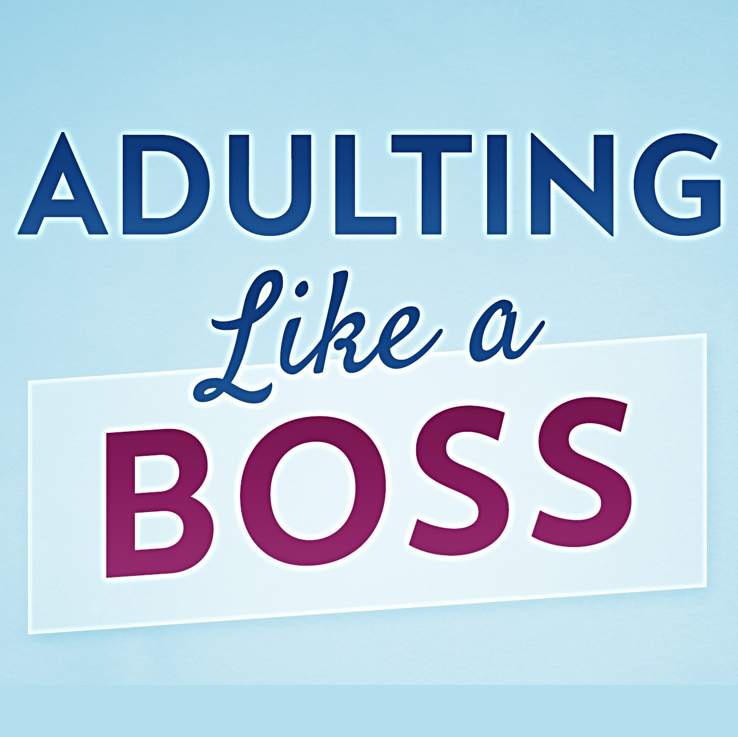 It’s that time again! A New Year and we all start thinking about New Year’s Resolutions! Either you make ‘em & break ‘em (81% of people break their new resolution by the second week of February), decide NEVER to make ‘em, or you fall into the very small category of people who make ‘em and KEEP ‘em!
It’s that time again! A New Year and we all start thinking about New Year’s Resolutions! Either you make ‘em & break ‘em (81% of people break their new resolution by the second week of February), decide NEVER to make ‘em, or you fall into the very small category of people who make ‘em and KEEP ‘em!
Download the Adulting Like a Boss 2019 GOALS WORKSHEET! But first, read on!
I’ve made resolutions through the years, and some I’ve kept and others have fallen by the wayside. So what’s the catch? Is it even worth it to try? Should we make New Year’s Resolutions?
Why do we do it?
There’s something about turning the calendar over to a new year that makes it feel like a great time for a fresh start. New Year, New You! For kids, the beginning of each school year is a fresh new opportunity, but for those of us whose school years are behind us, the changing of the calendar offers an opportunity to think “Fresh. New. Change.”
Are you someone who makes resolutions?
Today on the radio I heard a woman, Chrissy, call in to say she wasn’t even going to bother making a resolution to lose weight. She said she had done that so many times and failed. She realistically knew she wouldn’t keep it. But instead, she stated she would make a resolution to spend more time with family and friends. Wonder if she’ll keep it?
Why don’t we keep them?
James Clear, expert in goals and habits (Read his bestselling book, Atomic Habits) says that instead of making resolutions, or even setting goals, we should instead put systems into place that facilitate us to improve by small increments until our goal is actually met. He says, “I’ve found that goals are good for planning your progress but systems are good for actually making progress.”
If our plans aren’t concrete, and there’s no plan for implementation and no accountability, it’s unlikely that we’ll succeed in keeping any resolutions we make. Chrissy’s vague, “Spend more time with family and friends” is likely to fail unless she implements habits into her life that force her to make the change. Otherwise, she’ll find that she has a few get-togethers with family and friends in January, but by February, she’s back to working late, binge watching Netflix, and running errands all weekend, with her vow to change her life slowly fizzling out.
What kind of goals will work?
SMART is an acronym for the kind of goals that can help you implement real change in your life. SMART stands for Specific, Measurable, Achievable, Relevant and Time-bound. Let’s again use the radio caller Chrissy’s example. How can she use the SMART goal to be more likely to accomplish what she wants in the new year? Let’s take a look at each one, and put Chrissy’s situation in as an example:
Specific – Be specific about exactly what it is you want to accomplish or change in your life.
Chrissy’s example: I want to spend time each week connecting with a family member or a friend.
Measurable – Make sure there’s something you can measure. “Spend more time” isn’t really measurable. An hour a week is measurable. Did she spend the hour this week? Yes or no? It’s measurable.
Chrissy’s example: I want to spend one hour each week connecting with a family member or a friend.
Achievable – The goal has to be something that will fit into your life (even if you make drastic changes). “Becoming an NBA superstar” is not an achievable goal for a 60-year old woman, for example!
Chrissy’s example: I want to spend one hour….. If Chrissy is going from spending time with family and friends from “occasionally” to “daily” it’s probably not going to happen. But an hour a week is an achievable goal.
Relevant – The goal should be something that is relevant to your life and will fit the kind of life you are hoping to attain. For Chrissy to have a goal of learning Portuguese might be a great goal, but unless she has a reason to learn it, it’s not likely to happen.
Chrissy’s example: Spending time with family and friends is relevant to Chrissy’s life and something that will likely bring her great intrinsic reward.
Time-bound – A goal that is non-specific on time is usually to “loose” to stick. By giving yourself a deadline, you are more likely to stick with it.
Chrissy’s example: I want to begin in January spending one hour each week connecting with a family member or a friend.
Now Chrissy can plan coffee with her friend this week, a visit with her cousin who lives in town next week, and so on. She can do MORE than the one hour once a week, but by having a goal that is small, she is more likely to achieve it. Then as she finds she is accomplishing this small goal, she is also more likely to go on to bigger goals.
A few other suggestions about goals:
Write them down! Written goals are 10x more likely to be accomplished than non-written goals! Having them in a place you see them every day will motivate you even further!
Get a partner! Accountability can increase your odds of accomplishing your goals. For example, if you take up running, having a running partner will ensure you get your shoes on each morning!
Stay motivated! Find a podcast, read a book, or listen to inspirational TED talks about your goal!
If you’re ready to dive in, for my New Year’s Resolutions, I make goals in the following categories:
- Financial
- Health/Physical
- Spiritual
- Educational/Intellectual
- Family/Relationship/Social
- Vocational
- Humanitarian/Volunteering/Giving
I spend about a half a day on or around New Year’s Day creating my goals each year, and then often will follow up making some kind of visual aid, such as a dream board. If you’re at a loss of where to start, I have developed a tool that’s easy to follow.
Be sure and download your Adulting Like a Boss 2019 Goals Worksheet HERE to make your 2019 goals!
